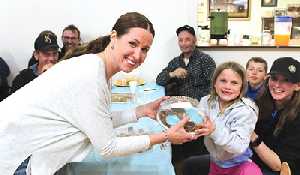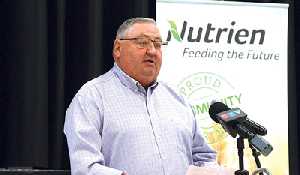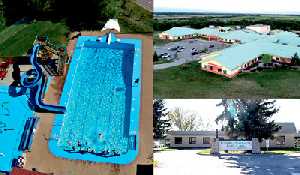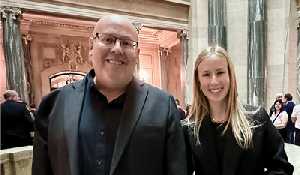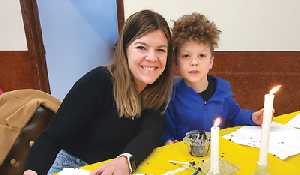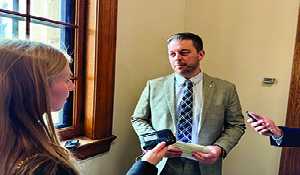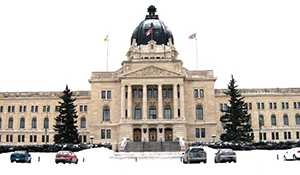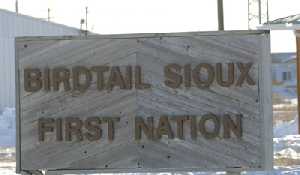RQHA approves Moosomin needs study
September 3, 2012, 3:04 am
Kevin Weedmark


The Regina Qu’Appelle Health Region will conduct a needs assessment to determine if the health needs of the Moosomin area are being met or if changes to facilities or services are needed to meet those needs.
The Regional Health Authority decided at a meeting Wednesday to move forward with a needs assessment for Moosomin.
Karen Earnshaw, the Regina-Qu’Appelle Health Region’s acting vice president of rural, restorative, and continuing care, told the World-Spectator Thursday that a consultant is already in place for the Moosomin area study, and the study should be completed by February 2013.
“We were very confident that this would go ahead, so we’ve already started work on it,” said Earnshaw. “We hired a consultant whose specialty is needs assessment, and she has set some aggressive timelines to complete this.”
A small steering committee will oversee the needs assessment. The committee will include a representative of the Moosomin and District Health Care Foundation, a manager from SEICC, a data analyst for the health region, a representative of population health, Karen Earnshaw, and Regina Qu’Appelle Health Region Chief Operating Officer Michael Redenbach.
Earnshaw says the consultant working on the needs assessment will be focused on gathering as much input as possible from people in Moosomin and surrounding communities.
“She has a plan to engage folks from Moosomin and surrounding areas,” Earnshaw said. “She will be gathering input from the physicians at the Family Practice Centre, she will be speaking with health administration from Sun Country, we will be looking at Wawota, Maryfield, Rocanville, Elkhorn— all the surrounding communities—she will be talking to special interest groups—the seniors, the mines—so we should have a lot of input from around the area.”
Specific terms of reference for the needs assessment will be established by the steering committee. “In general, the needs assessment will collect data, it will engage community folks, we will ensure we hear from people who provide and seek services— there will be public consultation,” said Earnshaw.
“We want to know about access to acute care services, mental health, emergency transport services, do we have the right mix of services for the community right now? It’s important to look at all these.
“The consultant wants to get all this done and provide a final report by the end of February. That’s a very aggressive timeline—there are a lot of people to meet and a lot of work to do.”
The next step once the needs assessment is complete will depend on the findings.
“Depending on what the information tells us, depending on what this looks like, other decision-makers may need to be involved,” said Earnshaw.
“Depending on the findings, this information may need to be shared with the ministry of health,” said Earnshaw.
Bill MacPherson, chair of the Moosomin and District Health Care Foundation, said he is happy to see the needs assessment going ahead. “The reason why I think they’re full speed ahead is they realize the facility wasn’t big enough to begin with,” he said.
“You (The World-Spectator) said that and I said that, and I think they realize that now. Moosomin’s a big medical centre, and more services would help everyone out in the whole Regina Qu’Appelle region.”
The health care foundation is made up of mayors and reeves of municipalities in the Moosomin region. The foundation was responsible for fundraising and collecting municipal contributions for the local share of the original construction cost of the Southeast Integrated Care Centre.
MacPherson has no doubt what he would like to see come out of the needs assessment.
“I’ve always said if we had another 10 long-term beds it would really take the pressure off seniors having to go to Wolseley. If we could get 10 acute care beds, that would be a big improvement, and if we could get more recovery beds so our talented doctors could do more surgeries, that would really benefit the region.”
The SEICC currently has 58 long-term care beds and 27 acute care beds.
The Regional Health Authority met with the Moosomin and District Health Care Foundation in June to hear the health care foundation’s arguments that a needs assessment is warranted.
At that time, Regina-Qu’Appelle Health Region CEO Dwight Nelson told the World-Spectator that he believed the region should move forward with a needs assessment.
“Their bottom line request was to say we think it’s time for a needs assessment, and I completely agree,” Nelson said. He said that population growth in the area and the growing importance of Moosomin as a centre of medical care both support a needs assessment.
“There are two things that support the idea of a needs assessment—the growth going on in your area for one thing, and secondly because of the medical staff situation you are providing services to quite a range outside of Moosomin.”
The needs assessment will get under way shortly and will take four to six months to complete.
“If we really do one of these assessments thoughtfully, we have to look at data regarding population, we have to have focus groups in Moosomin and surrounding communities. Most times we would hold one or two community forums so people can raise concerns or suggestions.
“If it shows a need for new beds, we would make a submission to the provincial government for those beds. We would have to have the provincial government’s approval as they’re the funding partner.”
Nelson said he is impressed by the work of the Moosomin and District Health Care Foundation.
“The foundation has raised in total $13 million over the years and that’s remarkable for the population,” he said.
“I’ve said to people in Regina that if they supported health care proportionally the way Moosomin does, it would be amazing.”
